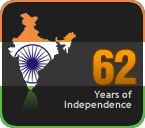One of my ex-colleagues, whom I happened
to bump into during my morning brisk walks in the Sanjay Gandhi National Park, seemed
to be doing his bit of ‘giving back to society’ each Sunday morning. I would spot him carrying a large bagful of ‘jeera-butter’ – a bakery product he brought
along to distribute to all those residing in the slums inside SGNP, every
weekend. He even urged me to come along
with him to help him distribute it on one occasion, which I gladly did on a couple of occasions. I observed that he was really enjoying all
that he was doing – if children came rushing, he would tell them to queue up. He
would tell an old, infirm lady not to bother getting up and coming over and go
over and hand over some to where she was seated. When I told him I appreciated is kindness, he
said in fact, he was doing nothing at all and really wanted to do much more!
Then one Sunday morning, he was
walking down the long road to Kanheri caves empty-handed and he seemed forlorn,
drifting without a purpose. When I inquired
what had happened, he told me that the security guards had seized the packet
and warned him not to bring any such foodstuff inside the Park! I gathered
later, that the Forest Officer in charge was of the opinion that several
kind-hearted visitors to the park were actually “spoiling” the slum-dwellers by
offering freebies. Another regular
morning walker justified his stand citing that such practices make them lazy
and deter them from striving to improve their living standard through hard work
in life! He mentioned that he always preferred
offering to foot their education expenses to his relatives back home in the
village, but never offered free money for day-to-day expenses.
On other occasions, I have been
the recipient of advice not to give any money to the begging children at
traffic signals. “They are being planted
by gangs – they just handover the money which could be funding nefarious
criminal activities – don’t give them any money” is a common line we urban
residents hear from our all-knowing friends.
So how exactly can we help these faces of obviously destitute people on
the street that we see each day, one wonders? Give them food to eat, says
another! So there we are back to giving
food and making them lazy! What do these
kids need? Perhaps what they really need is a rebirth into more fortunate well-to-do
families? Or an NGO to spring up and teach street kids and turn around their
fortunes? So we come home and write a
cheque to an NGO who does good work for the less privileged and satisfy
ourselves that our urge to help them has been met – if not fully, at least
partially!
The nation is today at the same
cross-roads – I am not alone! Ever since
the Food Security Bill was tabled, experts have been telling us why this Bill
will make our people lethargic and how the future of the country could be bleak
if an entire population got free food! So
are we saying that our current public distribution systems, mid-day meal
programs for the weaker sections, other freebies that States like Tamil Nadu
(famously, and other states too), have been making our people choose a life of
leisure instead of struggling hard to come up in their individual lives? I do
not subscribe to this view. There are
enough incentives such as better housing, better education for their children,
getting well-paid jobs in more organized sector jobs – in short a better
lifestyle beckons those who wish to rise in this world. It is also seen that whereas many millions
do hopelessly struggle and fail to make it, several stories of small-time
rickshaw drivers have featured in newspapers for their children securing ranks
in competitive examinations.
Basically, if any government
scheme meant for the abject poor is implemented properly, it would only help
the lower strata of our society to save their meager earnings to educate their
children and come up in life. The newly
introduced Food Security Bill is not a game-changer in that respect – we know
of State Governments like Chattisgarh and Tamil Nadu already having implemented
a fairly substantial food distribution system already. One need not grudge them their rightful, nor
need to worry about “spoiling” these poor people, while relishing our gourmet
meal at a multi-star hotel. As a
taxpayer of the country, one would rather have our taxes go for such causes
than to fund subsidies that aid fuel-guzzling SUVs that I cannot afford, what
say?
The only real problem then is
that of insufficient funds with the Government to meet the obligations the
nation has taken upon itself – the ‘fiscal deficit’, as they call it. Now that could be a rather sticky problem to
face - for the next government, that is.
One really worries whether the FSB is effectively rolled out across the
nation or not?! But one thing is
certain, large-hearted donors running NGOs will continue to feed the people who
need it – and hopefully reach out to more and more deserving and needy people
of our country for several years to come!
The nation has done its bit of
giving away well before the “Joy of GivingWeek” observed in India in the first week of October each year. It is now our turn to pick and choose the
cause and the suitable NGO that we would want to support. Hunger
is not everything, right?
















